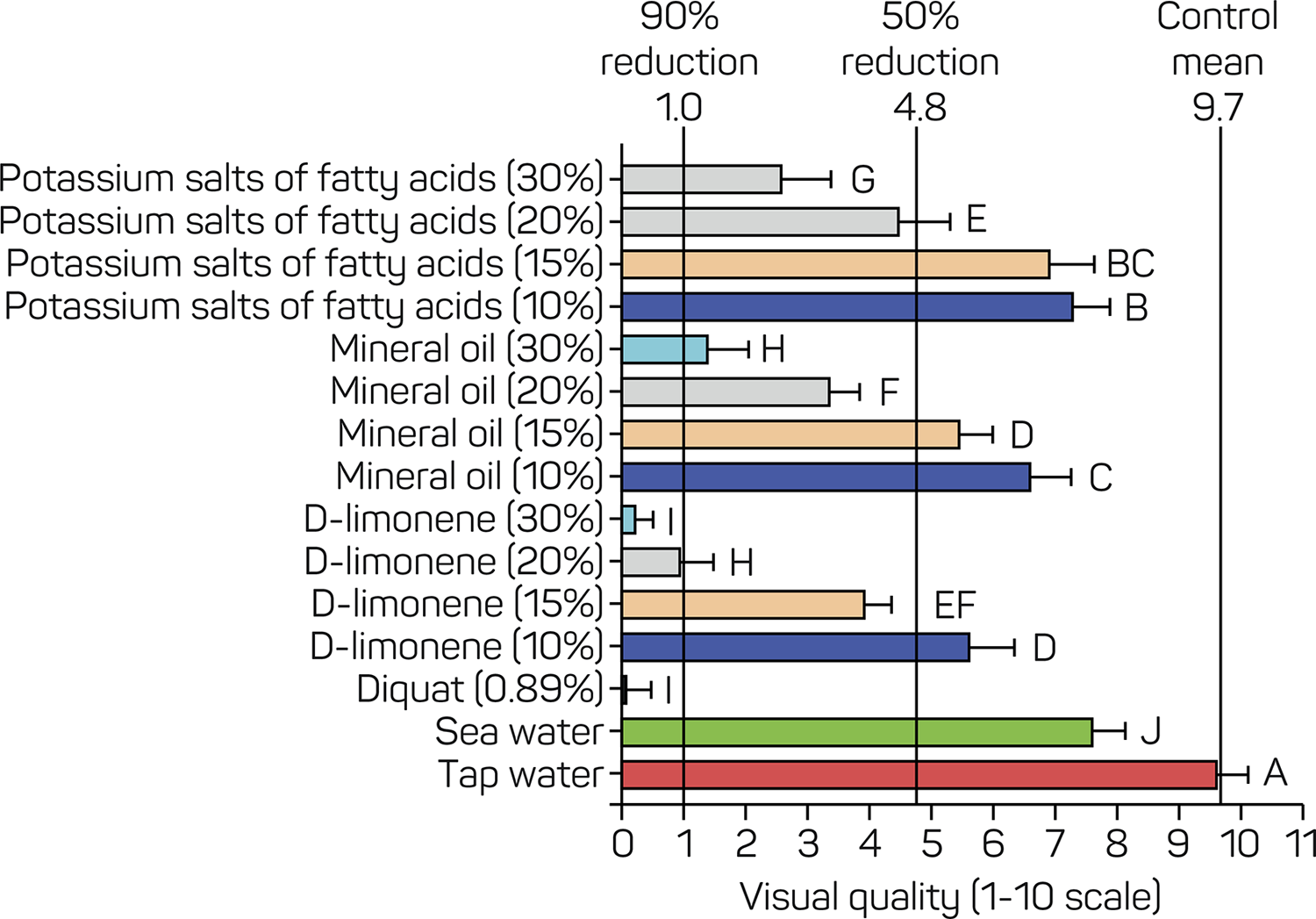Abstract
Background Pistia stratiotes L., is an invasive aquatic plant that forms dense mats, disrupting ecosystems and affecting waterway navigation. Although various control methods have been studied, there is no clear consensus on the best approach.
Objective The goal of this study is to evaluate the efficacy of various control methods in managing P. stratiotes infestations.
Methods Laboratory trials tested the efficacy of diquat, d-limonene, mineral oil, and potassium salts of fatty acids on P. stratiotes. Treatments were applied at concentrations from 10–30%, with weekly monitoring for five weeks to assess treated plants visual quality (injury symptoms), and dry biomass. Greenhouse trials replicated the most effective laboratory treatments.
Results In laboratory trials, diquat at 0.89% achieved > 90% reduction in visual quality and dry biomass of P. stratiotes, making it the most effective treatment. D-limonene at 30% showed similar efficacy, while mineral oil also significantly reduced P. stratiotes populations. Combinations of d-limonene with mineral oil or potassium salts of fatty acids exhibited synergistic effects; some combinations achieved >90% reduction in visual quality and dry biomass. Treatments prepared with seawater with diquat (0.89%) and d-limonene (20% and 30%) were the most effective treatments. Greenhouse trials confirmed these results, suggesting these treatments could be effective.
Conclusions In conclusion, this study underscores the effectiveness of diverse strategies in controlling P. stratiotes infestations. Further research is warranted to evaluate long-term efficacy, cost-effectiveness, and environmental impact. Integrated approaches offer a multifaceted and sustainable solution for managing P. stratiotes, mitigating its ecological and economic impacts.
Invasive Species Control; Aquatic Plant Management; Herbicidal Treatments; Chemical Control Methods; Plant Population Reduction; Ecosystem Restoration; Integrated Weed Management; Environmental Impact Assessment

 Evaluating natural product-based herbicides for effective control of invasive water lettuce (Pistia stratiotes L.)
Evaluating natural product-based herbicides for effective control of invasive water lettuce (Pistia stratiotes L.) Thumbnail
Thumbnail
 Thumbnail
Thumbnail
 Thumbnail
Thumbnail
 Thumbnail
Thumbnail
 Thumbnail
Thumbnail
 Thumbnail
Thumbnail
 Thumbnail
Thumbnail
 Thumbnail
Thumbnail
 Thumbnail
Thumbnail
 Thumbnail
Thumbnail









